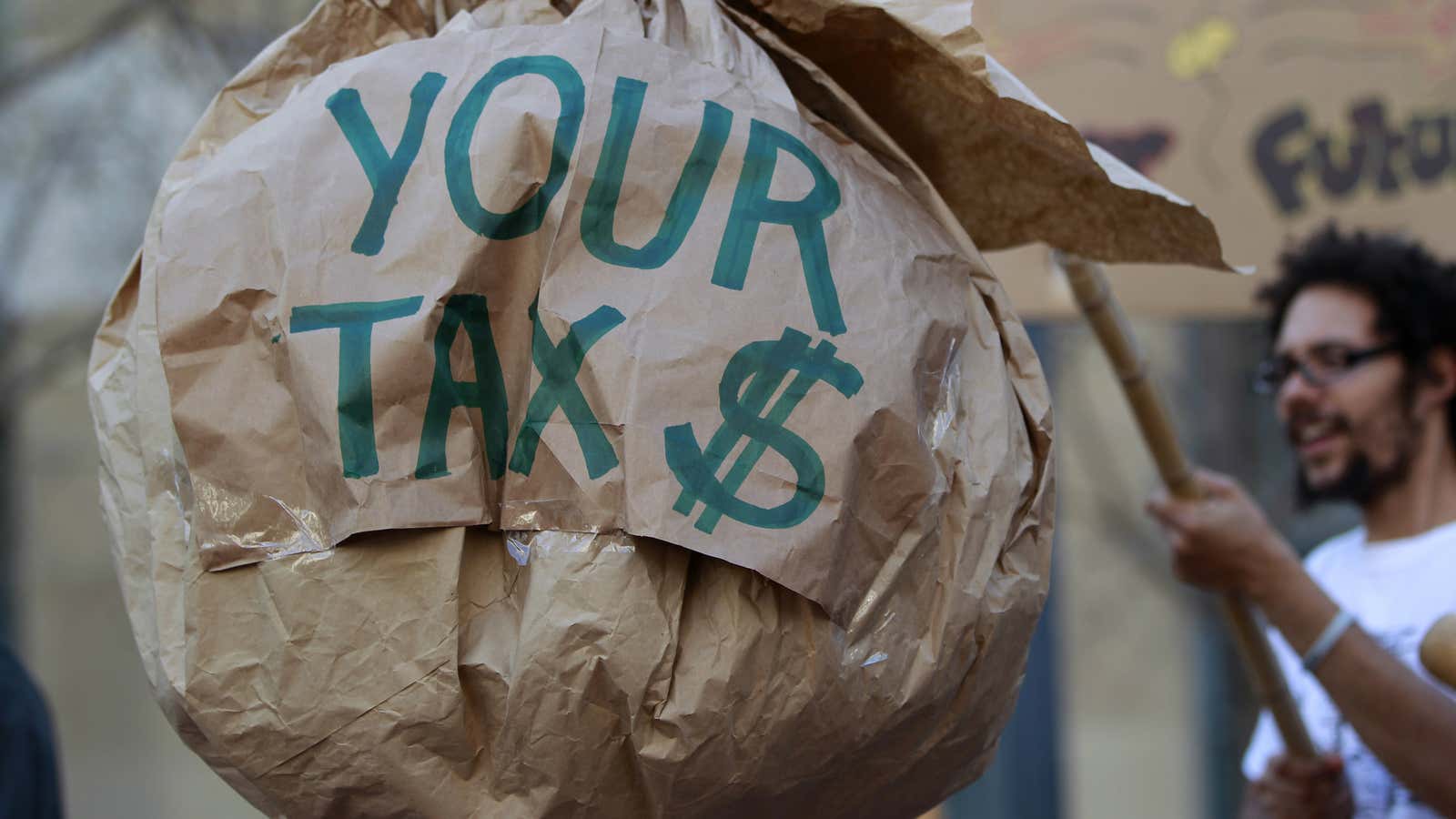I knew that this year’s tax return season would be bad. That’s a good thing.
Every year I fight with my accountant, who thinks I should make an overly optimistic income forecast, pay tax on it, and get a refund from the IRS each April, like most of his clients. I always push back—I’d rather pay the minimum, and get billed later. “I don’t want to to give the government an interest-free loan,” I argue. “Let them lend me the money.”
Last year he listened to me. As a result, I just got slammed with my biggest tax bill yet, more than twice what I expected. Family and friends smugly brag about their refunds, but as I write my check I tell myself they are the suckers who have fallen into a classic behavioral trap. I avoided that trap by paying less in taxes during the year, investing that money (not a bad decision last year, with the stock market up 9%), and then paying the government in April.
The IRS will receive more than 50 million individual income returns this year. Approximately 80% of the people who filed them will get a refund. Last year, the IRS issued about 40 million refunds, averaging about $3,103. That means taxpayers lent the government about $125 billion, interest-free, over the last year.
According to data from H&R Block, lower earners, receiving benefits like the Earned Income Tax Credit, are most likely to receive a refund. The fact they give the government an interest-free loan each year is surprising. This group is most likely to have low savings, with many scraping by paycheck to paycheck. Yet low earners, on average, overpay 13% of their income to the government. Even higher earners over-pay, often by asking their employer to withhold too much. About 62% of Americans who earn between $100,000 and $200,000 get a refund each year.
Why do 80% of Americans over-pay their taxes? Katherine Pickering, executive director of H&R Block’s Tax Institute told CNN that most people would much rather get a check than a bill, even if it costs them money. ”Many people want to make sure they don’t owe the IRS money,” Pickering said.
Taxpayers could also be driven by the “endowment effect,” in which, once they have something, they don’t want to give it up. For many people, writing that check feels worse than never getting that cash to start with.
Or, overpaying could be a form of forced saving. Some people might doubt their ability to save and worry they won’t have money to pay their bill come Tax Day. They are willing to pay the government, in terms of offering them an interest-free loan, if it forces them to save. What and how they spend their savings offers fascinating insights. One study of the 2009 tax credit, which allowed some Americans to get a rebate and others to be taxed at a lower rate throughout the year, estimates that Americans who got the one-time rebate ended up spending more than those who got bigger paychecks. Another study theorizes that Americans tend to prioritize their refunds for health care expenses.
University of Chicago economist Damon Jones, on the other hand, argues that the decision is the result of inertia. People choose a withholding level and don’t revisit it when their income, family, or tax law changes, either because they’re lazy when it comes to visiting HR to adjust their withholdings, or because they may not realize their tax status has changed.
None of this seems rational to me.
Yet even though this economist takes pride in my rational, optimal behavior, it’s hard to feel too smug. I’ll admit it: compared to getting a refund, writing the government a big check really hurt.
